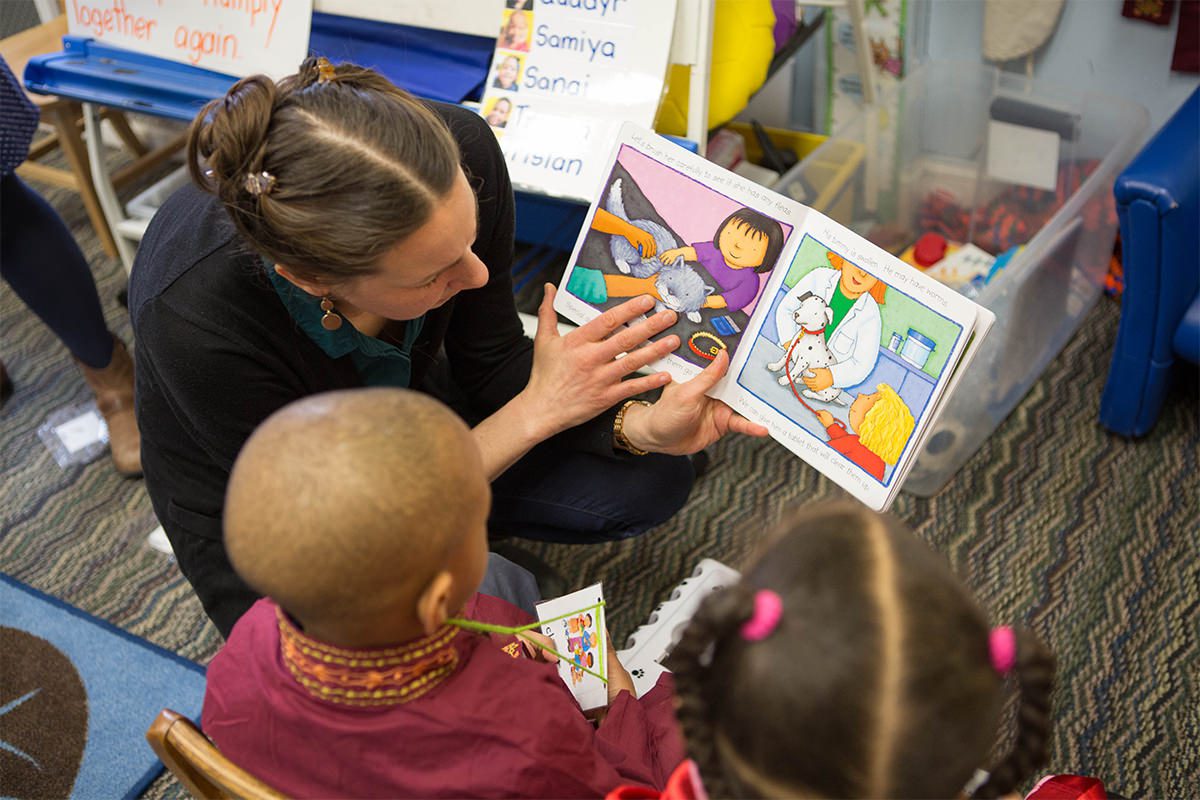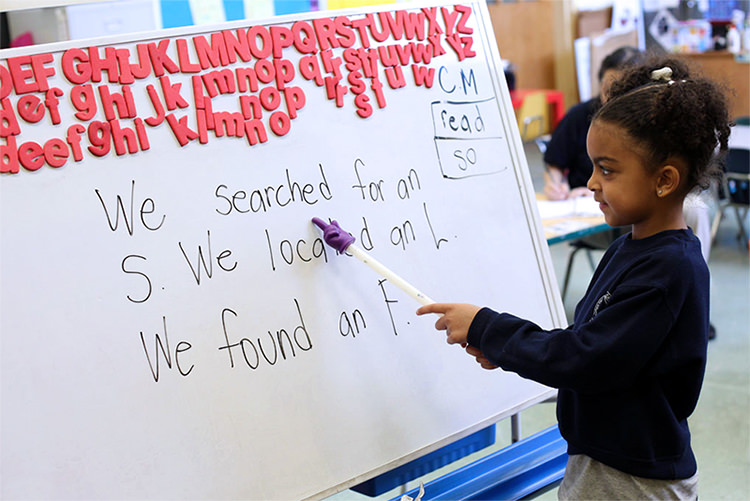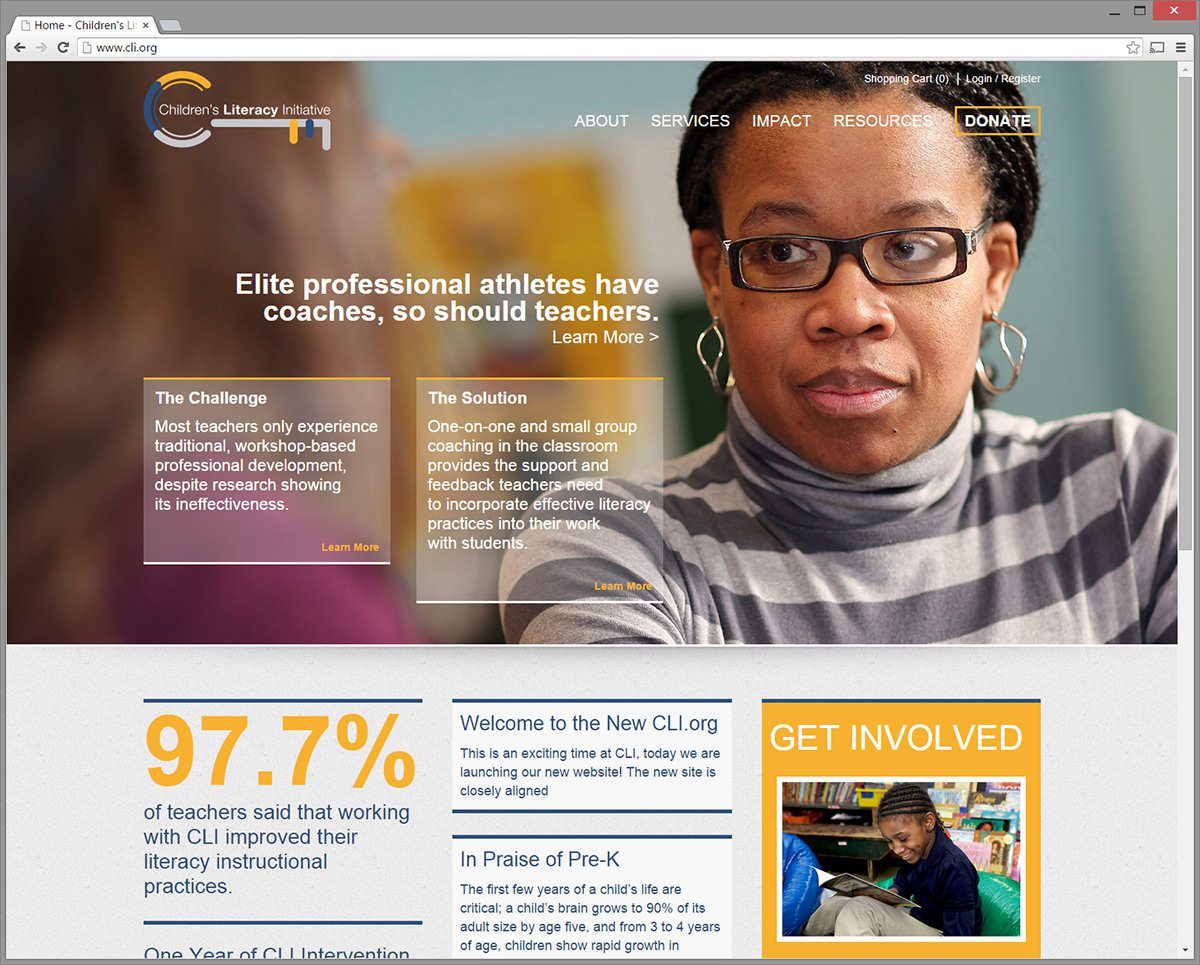Since 1992, Madeleine Glowienka has worked as a teacher. Currently, she is a 1st grade teacher at Anna L. Lingelbach School in Philadelphia. CLI asked Madeleine about her experiences and expectations partnering with CLI. Partners in Literacy Glenda Smiley Andrew Eckhorn Rebecca Eisenman What were your initial expectations about CLI? I had few—basically I was unsure how it could/would really …
CLI to Use $19.5M Grant to Reach More Students in New Markets
“The CLI program produces substantial effects on teachers’ classroom environment and literacy practices, which in turn, lead to measurable effects on average reading achievement in early elementary grades.” That was American Institutes for Research’s conclusion after its three-year impact evaluation of Children’s Literacy Initiative’s five-year, federally funded project in 38 schools across four, low-performing urban school districts. Now CLI is …
From the Field: Message Time Plus & Building Reading Skills
This article is the first of an ongoing series entitled From the Field. Short, inspiring and heart-warming classroom anecdotes contributed by our professional developers as they work in classrooms across the country. Names of teachers and students have been changed. In the beginning of the school year, little Julie was a new kindergartner in Ms. Smith’s classroom. Julie was always …
Camden Teacher Discusses Transformation Through CLI
Gina Post, a bilingual 2nd-grade teacher at Sumner Elementary School in Camden, N.J. talks to the Office of Innovation and Improvement in the U.S. Department of Education to discusses her work with the Children’s Literacy Initiative (CLI). CLI is a Philadelphia-based organization that supports teachers focused on early literacy. In 2010, CLI won a $21.7 million Investing in Innovation (i3) Validation grant, …
Welcome to the New CLI.org
This is an exciting time at CLI, today we are launching our new website! The new site is closely aligned with CLI’s strategic vision for growth and expansion over the next few years and shows off our brand new logo. The new CLI.org gives visitors an easy way to learn about our services, methods and impact and offers us a great way …
The Mid-Year Numbers Report
 With the holidays behind us we are officially into the second half of the school year and, if you’re like me, this means taking stock of what’s been accomplished so far this year and where we still have to go. So where are we organizationally? Well, here are the numbers:
With the holidays behind us we are officially into the second half of the school year and, if you’re like me, this means taking stock of what’s been accomplished so far this year and where we still have to go. So where are we organizationally? Well, here are the numbers:
5 Strategies For Better Teacher Professional Development
 It’s difficult, if not impossible, for learning to take place when conflicting goals are set, unrealistic expectations prevail, and support is lacking. School districts often focus on alleviating these problems in the classroom — for students, that is.
It’s difficult, if not impossible, for learning to take place when conflicting goals are set, unrealistic expectations prevail, and support is lacking. School districts often focus on alleviating these problems in the classroom — for students, that is.
Transforming Instruction: Success in the Field
CLI continuously works to ensure our professional developers (PDs) receive the necessary support to coach and conduct trainings in the field. To track program fidelity, PDs complete field reports three times a year – in November, February, and June. These reports are used to help improve our services while allowing PDs to reflect on the successes and challenges they encounter in the classroom.
The Practical Impact of CLI on Teachers
 Ever walk away from a training feeling totally excited about what you’ve learned only to get back to the real world and say to yourself “Now what”? I’ve been there – I’ve attended PD sessions where the presenter has been really engaging, covered a lot of in depth material and even made links to how this could benefit me in my role but one crucial component was missing – the “how”.
Ever walk away from a training feeling totally excited about what you’ve learned only to get back to the real world and say to yourself “Now what”? I’ve been there – I’ve attended PD sessions where the presenter has been really engaging, covered a lot of in depth material and even made links to how this could benefit me in my role but one crucial component was missing – the “how”.
AIR Finds CLI Results to be an Exception to the Norm
 This is article has been written by guest author Terry Salinger of American Institutes for Research. Terry is an AIR Institute Fellow and chief scientist for literacy research.
This is article has been written by guest author Terry Salinger of American Institutes for Research. Terry is an AIR Institute Fellow and chief scientist for literacy research.




